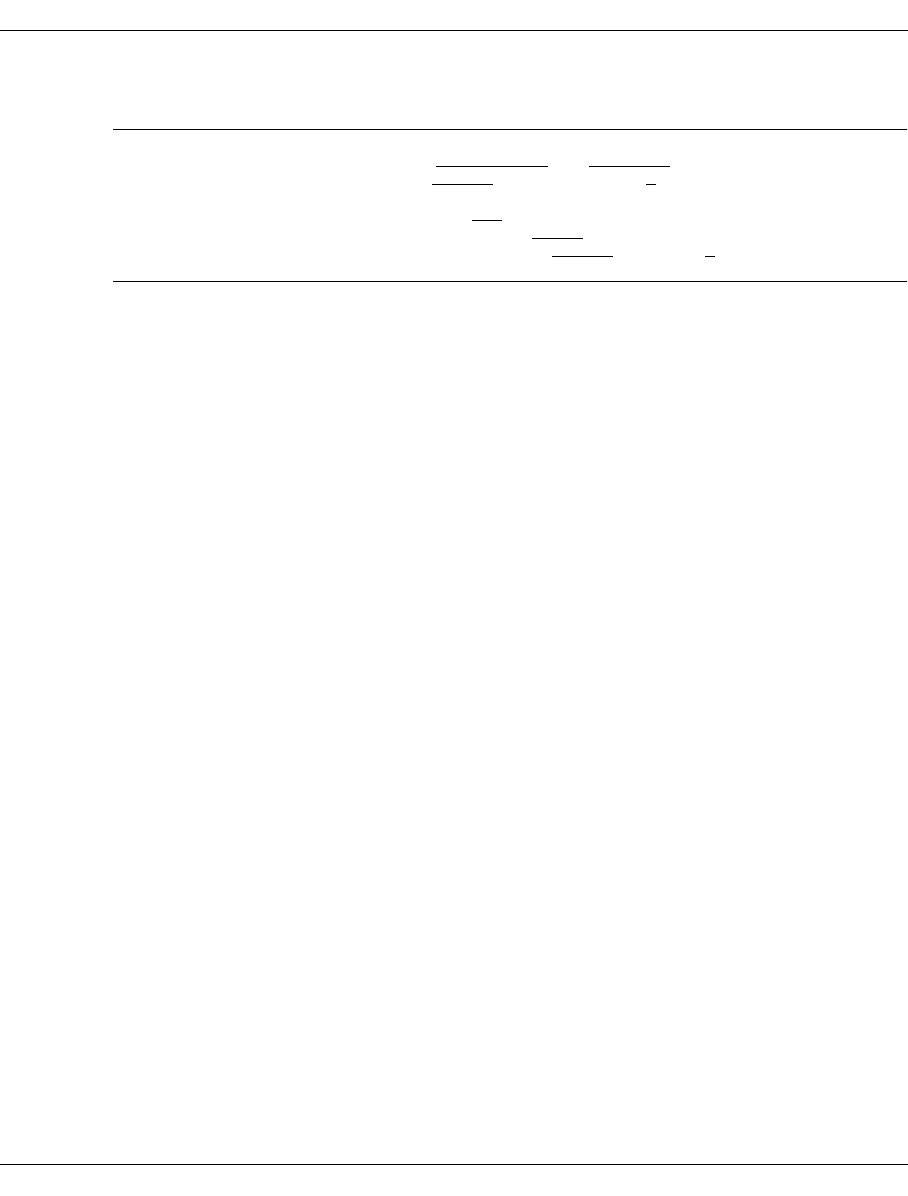
Subschema DDL User interface
190 U929-J-Z125-9-76
Copying a repeating group and reducing it if required
level-number-1 group-item-name[ GROUP-USAGE IS NATIONAL]
[ OCCURS integer TIMES].
{level-number-2 record-element-name PICTURE.....
USAGE.....
OCCURS.....}....
A repeating group is a group item with repetition factor. The repetition factor indicates the
number of duplicates of this group item to be grouped into the repeating group.
A repeating group must be copied into a subschema if one of its items is to be copied.
When copied into a subschema, the repeating group can be reduced as follows:
– by specifying a lower repetition factor. It is possible to reduce a group item down to a
single occurrence.
– by excluding record elements that are part of the repeating group from the subschema.
group-item-name specifies the name assigned to the repeating group by the user in the
schema.
integer specifies the repetition factor. It must be at least 1 and may not exceed that specified
in the schema.
The default value for integer is 1.
record-element-name denotes a record element which is defined as part of the repeating
group in the schema and which is to be copied into the subschema. It is copied as described
on page 186 and page 188 if it is an item, as described on page 189 if it is a vector or as
described in this section if it is a repeating group.
level-number-2 defines the record element as part of a repeating group in the subschema.
level-number-2 must be greater than level-number-1.
The following applies for all record elements to be copied from a repeating group in the
schema into a subschema: Record elements must have the same level number if they have
the next higher group item in common.
You use the GROUP-USAGE clause to declare a national repeating group, i.e. a repeating
group which is treated in its entirety like a national data item. The GROUP-USAGE clause
may only be specified if all lower-ranking record elements are of the type NATIONAL and
level-number-1 is not equal to 01.


















